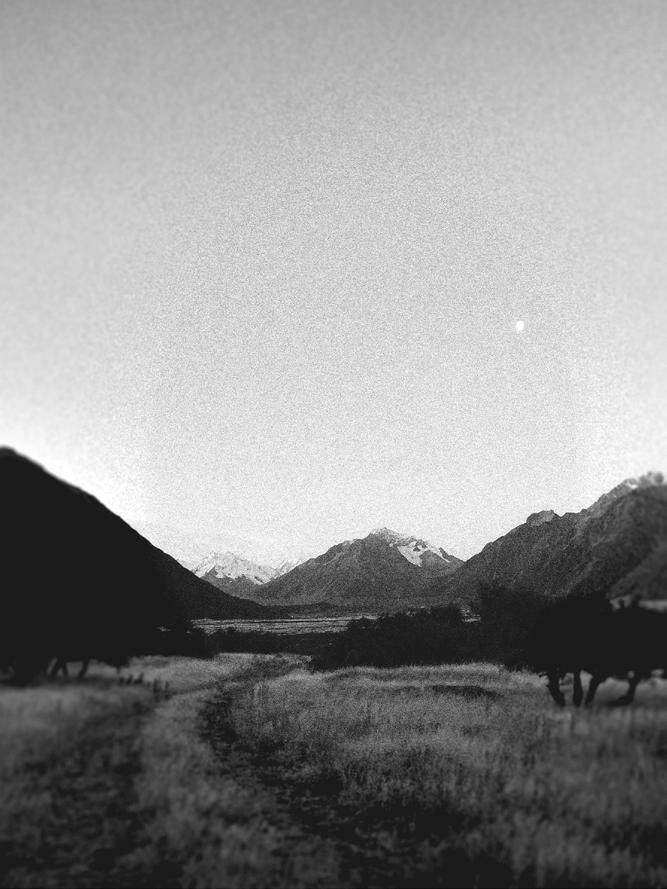
3 minute read
2.4 Performative aesthetics
The chapter concludes with a description of what it means to be inspired by ‘a performative melancholy’ and ‘a performative contemplation’ in the context of aesthetics in landscape architecture. This section describes the work done on aesthetics in relation to environmental issues by a selection of landscape architecture researchers.
Roncken explores aesthetics in the sublime experience of 21 st century degraded environments. He argues that landscape architecture has the capacity to transform negative aesthetic experiences into opportunities for creative engagement (2018). This is in line with the notion of a ‘performative aesthetic’, a term used in a compelling manifesto to hold onto beauty in sustainable landscape design (Meyer, 2008). The manifesto argues that aesthetic appearance has the capacity to shift human consciousness and foster care that will change behaviour (Meyer, 2008). It argues that sustainable design has to reach beyond its comfort zone of dealing with “ecological health, social justice and economic prosperity” and consider the role of aesthetic experience in tackling environmental issues (Meyer, 2008, p. 6).
Advertisement
Van Etteger et al. are another amongst a growing number of authors, that are uncomfortable with current trends in design that praise technical solutions, emphasize function, whilst brushing aesthetics aside (van Etteger, Thompson, & Vicenzotti, 2016). They argue for aesthetics in landscape architecture to be brought closer to those of art, where the importance of aesthetics is not contested. This thesis intends to build upon the above work to further strengthen the role of aesthetics in addressing environmental issues.
3
Diagnosing melancholia
As stated in the Introduction, this thesis hypothesizes that people do experience environmental melancholia in relation to glacier retreat. Confirming or disconfirming the hypothesis is imperative to the rest of the thesis. To do that, this chapter uses a case study to answer the first research question, how do people experience and reflect upon glacier retreat at Haupapa/ Tasman Glacier in Aoraki/Mt. Cook National Park? It then elaborates on the specific nature of the experience and on peoples’ personal reflections of their situation. These findings will provide insight into how glacier retreat affects people in Aoraki/Mt. Cook National Park and inform how to approach an aesthetic framework.
To be able to discuss personal experiences and reflections of glacier retreat in a specific case study, it is important to be familiar with the context in which these occur. That is why Chapter 1 introduced the environmental, economic, and cultural implications for the country as a whole, which allows this chapter to address people. Firstly, I define experience and reflection, because they inform the research and analysis approach, I then explain the approach, followed by the results. Experience & reflection In this thesis, the term “experience” has two arms. The first arm is used to answer the above research question. For this, experience refers to the elements considered part of environmental melancholia. It is therefore personal, subjective experience that might differ from person to person, but will likely reveal relevant patterns and overlapping elements. These elements are ‘loss, mourning, and melancholia’ and ‘ambivalence’ which, as described in Section 2.2.1, are split into a list of more specific experiences.
The second arm involves landscape architecture. This becomes relevant later when I approach the design response. The Oxford English Dictionary describes the verb “experience” as, “to encounter or undergo (an event or occurrence)”. This interests the landscape architect because it happens in space. The Dictionary then adds, “to feel (an emotion or sensation)” as a possible subcomponent of the encounter. The encounter [in space] is therefore accompanied by a subjective reaction. The experience requires input from spatial properties that result in physical sensations – touch, sight, smell, and sound, and the triggering of memories, narratives, and values attached to this space. These can precipitate an experience like contemplation and/or evoke an emotional reaction like melancholy.
“Reflections” refer to relevant experiences and thought processes that fall outside the melancholia umbrella. They are opinions, attitudes, reasoning, and beliefs pertaining to glacier retreat and to perceptions about the present and future.







